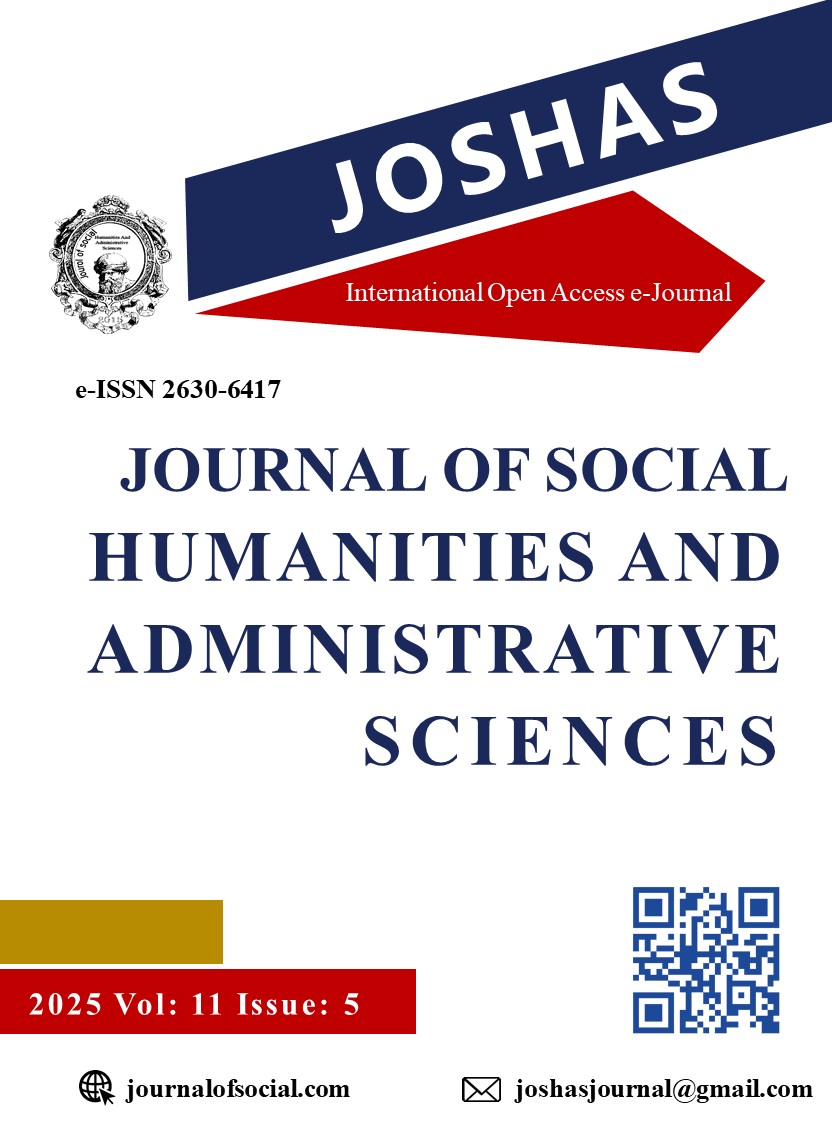Author :
Abstract
|
Bu çalışma 21. yüzyılda çocuk yetiştirme pratiklerindeki değişmeler bağlamında ortaya çıkan “helikopter ebeveynlik” kavramını sosyolojik bir perspektifle ele almayı amaçlamaktadır. Alanyazında sıklıkla psikoloji disiplini içinde değerlendirilen bu kavram, genellikle çocukların özerklik gelişimini engelleyen aşırı korumacı, müdahaleci ve denetleyici ebeveyn tutumlarıyla ilişkilendirilmekte; bireysel olarak açıklanmaktadır. Ancak bu çalışmada helikopter ebeveynlik bireysel bir davranış biçimi olarak değerlendirilmemektedir. Kavram toplumsal yapının, sınıfsal aidiyetlerin, toplumsal cinsiyet normlarının ve neoliberal yönetimselliğin iç içe geçtiği bir sosyolojik olgu olduğu savunulmaktadır. Helikopter ebeveynlik, özellikle orta sınıf ailelerde gözlemlenen ve çocukların eğitim, sosyal gelişim ve duygusal refahlarını optimize etmeye yönelik müdahaleci stratejilerle şekillenmektedir. Bu bağlamda ebeveyn, çocuğunun bireysel performansından sorumlu bir aktöre dönüşmekte; ebeveynlik ise bakım vermenin ötesinde gelecekteki piyasa başarısını teminat altına alma amacını taşıyan rasyonel bir yatırım faaliyeti hâline gelmektedir. Bu durum Foucault’nun biyopolitika ve neoliberal özneleşme kavramlarıyla birlikte değerlendirildiğinde, helikopter ebeveynliğin bireyin piyasa odaklı biçimlendirilmesinde üstlendiği yönetişimsel rolü de ortaya koymaktadır. Çalışmada ayrıca, helikopter ebeveynlik pratiklerinin sınıfsal farklılıklarla nasıl şekillendiği ve özellikle orta-üst sınıfa özgü kültürel sermaye biçimleriyle nasıl iç içe geçtiği tartışılmıştır. Annette Lareau’nun “yapılandırılmış çocukluk” modeli temel alınarak, orta sınıf ebeveynlerin çocuklarının yaşamlarını planlı etkinliklerle denetleme ve yönlendirme eğiliminde oldukları; buna karşın işçi sınıfı ailelerde daha serbest ve doğal gelişim odaklı bir yaklaşımın benimsendiği ortaya konmuştur. Son olarak helikopter ebeveynliğin toplumsal cinsiyetle kurduğu ilişki analiz edilmiştir. Özellikle annelikle özdeşleştirilen yoğun ebeveynlik normları, kadınlar üzerinde orantısız bir duygusal ve yapısal baskı üretmektedir. Bu bağlamda çalışma, helikopter ebeveynliğin çok katmanlı yapısını ortaya koyarak, bireysel pratiklerin arkasındaki toplumsal ve kültürel dinamikleri görünür kılmaktadır. |
Keywords
Abstract
|
This study aims to examine the concept of "helicopter parenting," which has emerged in the context of changes in child-rearing practices in the 21st century, from a sociological perspective. In the existing literature, this concept is frequently addressed within the discipline of psychology and is generally associated with overprotective, interventionist, and controlling parental attitudes that hinder children's autonomy development; thus, it is explained on an individual level. However, in this study, helicopter parenting is not considered merely as an individual behavioral pattern. It is argued that the concept is a sociological phenomenon shaped by the intersections of social structure, class affiliations, gender norms, and neoliberal governmentality. Helicopter parenting, particularly observed among middle-class families, takes form through interventionist strategies aimed at optimizing children’s education, social development, and emotional well-being. In this context, the parent transforms into an actor responsible for the child’s individual performance; parenting itself becomes a rational investment activity aimed at securing future market success, going beyond mere caregiving. When considered alongside Foucault’s concepts of biopolitics and neoliberal subjectivation, this situation reveals the governmental role of helicopter parenting in shaping individuals in accordance with market rationality. The study also discusses how helicopter parenting practices are shaped by class-based differences and how they are intertwined with forms of cultural capital specific to the upper-middle class. Based on Annette Lareau’s model of “concerted cultivation,” it is shown that middle-class parents tend to regulate and direct their children's lives through scheduled activities, while working-class families adopt a more hands-off and natural growth-oriented approach. Finally, the study analyzes the relationship between helicopter parenting and gender. Intensive parenting norms, which are particularly associated with motherhood, produce a disproportionate emotional and structural burden on women. In this regard, the study aims to reveal the multi-layered nature of helicopter parenting by making visible the social and cultural dynamics behind what appears to be individual practices. |





